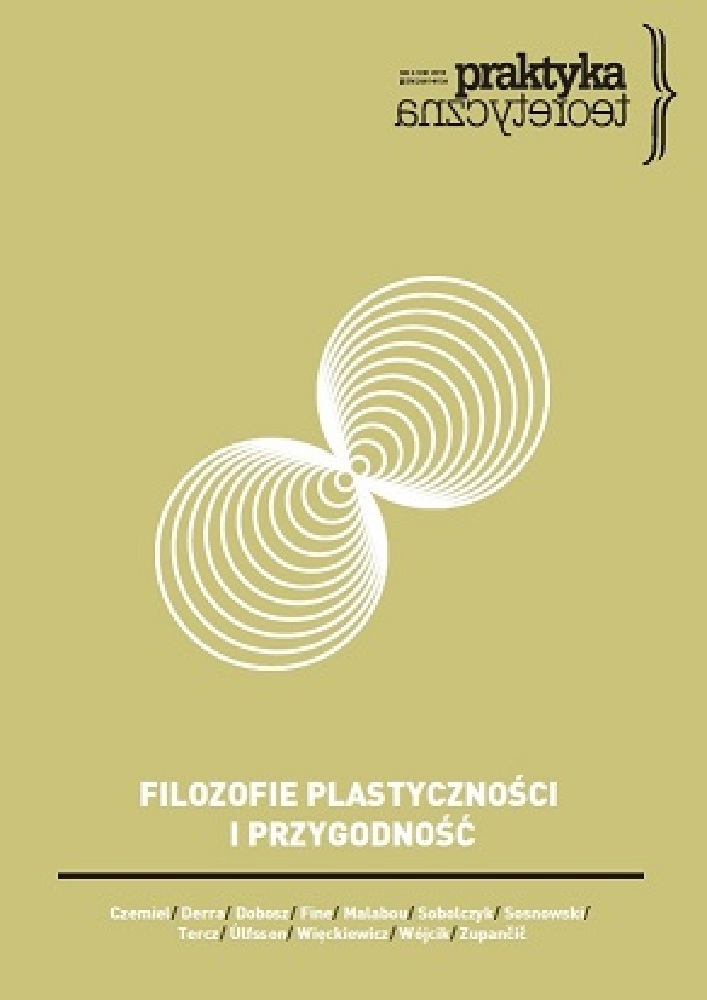Abstract
The author uses Althusser's materialism of the encounter to rethink Darwinism and the relation between natural and social selection. According to popular misinterpretation, social selection, or social Darwinism, implies constant fighting and competition as a foundation of society. Malabou argues that social selection (mis)understood that way is rather a disciplinary mechanism, preventing the emanation of difference within a system. This cliché ignores the ateological and contingent character of selection as well as the "plastic condition" of organisms in Darwin's theory, which we miss in contemporary social reality.
References
Althusser, Louis. 2016. „Podziemny nurt materializmu spotkania”. Tłum. J. Brzeziński. Praktyka Teoretyczna 1(19): 37–62.
Canguilhem, Georges. 1994. A Vital Rationalist: Selected Writings from Georges Canguilhem. New York: Zone Books.
Darwin, Karol. 2013. O powstawaniu gatunków drogą doboru naturalnego, czyli o utrzymywaniu się doskonalszych ras w walce o byt. Tłum. S. Dickstein, J. Nusbaum. Oprac. J. Popiołek, M. Yamazaki. Warszawa: Wydawnictwa Uniwersytetu Warszawskiego.
Derrida, Jacques. 2016. Widma Marksa. Stan długu, praca żałoby i nowa Międzynarodówka. Tłum. T. Załuski. Warszawa: Wydawnictwo Naukowe PWN.
Hegel, Georg Wilhelm Friedrich. 1969. Zasady filozofii prawa. Tłum. A. Landman. Warszawa: PWN.
Jacob, François. 1973. Historia i dziedziczność. Tłum. K. Pomian. Warszawa: Państwowy Instytut Wydawniczy.
Marks, Karol. 1976. „Przyczynek do krytyki heglowskiej filozofii prawa”. Tłum. [b.d.]. W Karol Marks i Fryderyk Engels. Dzieła. T.1. Warszawa: Książka i Wiedza
Mrówka, Kazimierz. 2004. Heraklit. Fragmenty: nowy przekład i komentarz. Warszawa: Wydawnictwo Naukowe Scholar.
Nietzsche, Fryderyk. 2016. Ecce homo. Jak się staje, kim się jest. Tłum. J. Dudek, E. Kiresztura-Wojciechowska. Kraków: vis-à-vis.
License
“Theoretical Practice” seeks to put into practice the idea of open access to knowledge and broadening the domain of the commons. It serves the development of science, thinking and critical reflection. The journal is published in open-access mode under the CC-BY-NC-SA 4.0 license (detail available here: http://creativecommons.org/licenses/by-nc-sa/4.0/). Articles published in the journal may be freely distributed, stored, printed and utilized for academic and teaching purposes without restrictions.
They should not be, however, used for any commercial purposes or be reconstructed into derivative creations. Access to the journal may not be limited or offered for a fee by any third party.
Prospective authors are obliged to fill in, sign and send back the publishing contract compliant with the CC licencing. [PL.pdf, PL.doc, EN.pdf,EN.doc].
According to this contract, authors grant the journal a non-exclusive right to publish their work under the creative commons license (CC-BY-NC-SA 4.0) without any financial obligation on both sides of the contract.
Before submission authors should make sure that derivative materials they use are not protected by copyright preventing their non-commercial publication. Authors are responsible for any respective copyright violations.
